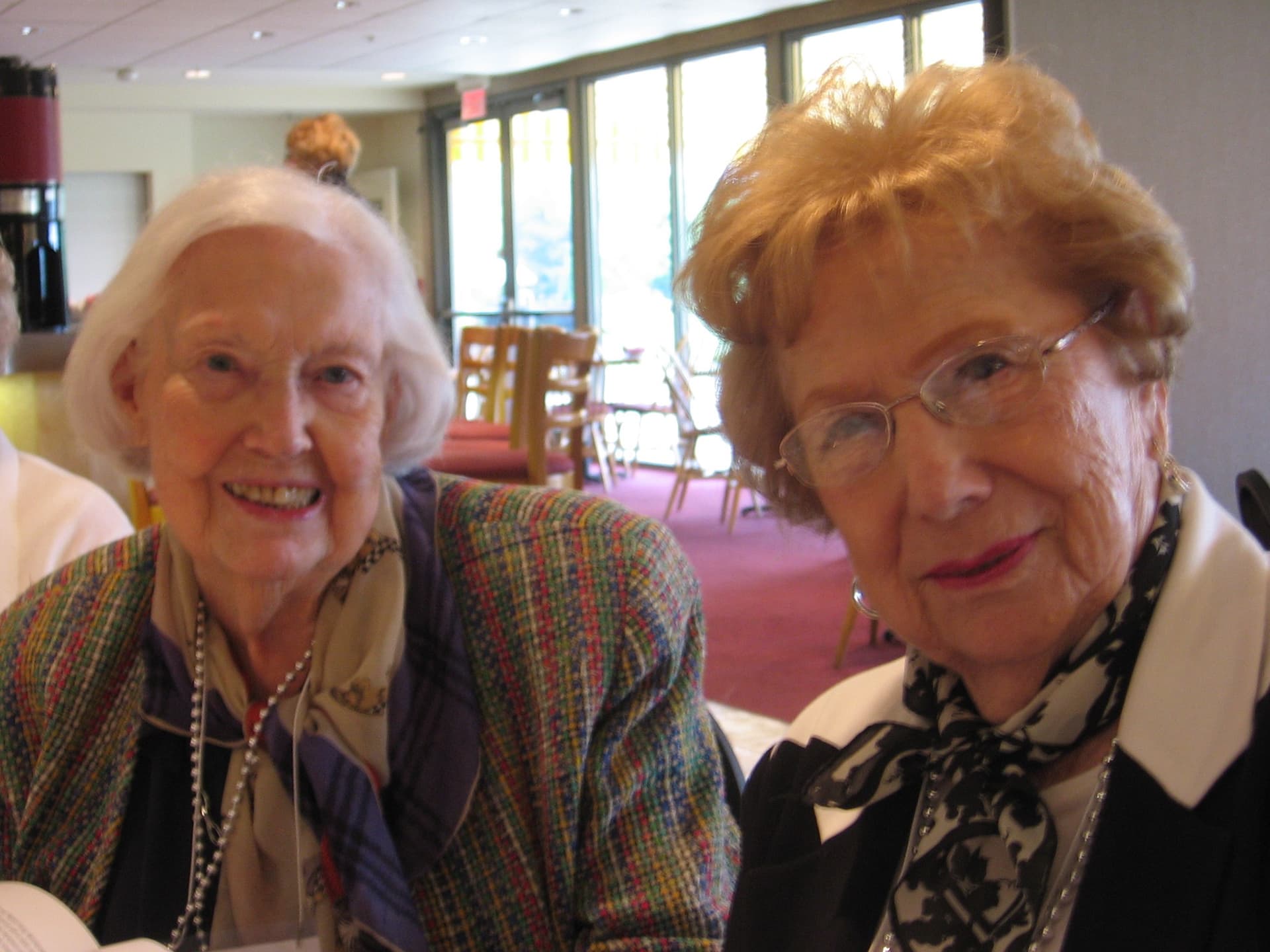Local History
Serving Citizens Since 1953

Ruth Kelley, left, and Ruth Barnes Newton helped establish the League of Southwest Missouri.
From its birth in 1920, the League of Women Voters grew adding chapters in cities and states nationwide.
On May 3, 1952, an organizational meeting held at the Greene County Courthouse established the League of Women Voters of Springfield, Missouri. A year later, at the statewide convention of the League of Women Voters held in St. Louis, the Springfield League was granted active status. Its 100 or so members elected Mona Weiser as the first president.
Members met in small study groups in private homes to discuss the major public policy issues of the day. Early issues included city planning, the city charter, taxes, and education. A bi-weekly television show on KTTS featured League members discussing current policy issues with member Jody Cox as moderator.
In the 1960s and 1970s, the Springfield League was busy tackling environmental issues, solid waste, and civil rights. Voter registration was conducted in many locations throughout the city. In 1973, the League responded to its growing membership and changed its name to the League of Women Voters of Springfield-Greene County.
In 1981, KSMU Public Radio director, Arlen Diamond, approached the League about a short interview show focused on local politics and government. Making Democracy Work has been on the air every Monday morning since. League volunteers host a different guest each week, covering topics related to our region and its government.
By 2003, members hailed from Christian and Webster counties as well as Taney County, with a majority still residing in Greene County. Our name was changed again to reflect this growth as we became the League of Southwest Missouri.
The League of Women Voters of Southwest Missouri now serves citizens in Greene, Christian, and Webster counties. Through voter registration events, candidate forums and voter guides, the League carries on the legacy of Carrie Chapman Catt and the other suffragists who worked tirelessly to ensure that everyone has the right to participate in our democracy.
Much has changed in the years since the League was formed: the candidates, the issues, the political climate. What hasn’t changed is the League’s mission to educate voters, influence public policy and bring about change.
